KEEPING SANE & SOLVENT: SIX AUDIOVISUAL WRITERS SHARE THEIR LOCKDOWN ADVICE
With so much currently on hold, many audiovisual writers who typically have numerous projects in progress at any one time, are facing difficult times right now. So, what are the best ways of keeping both sane and solvent? We asked six of the best for their advice.
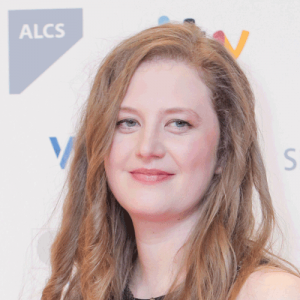 HANNAH GEORGE
HANNAH GEORGE
Deadlines have never been more negotiable. I’m working at about 75% of the pace I was before all this so I’m negotiating myself a little more time to deliver. Obviously don’t take the mick, but it’s better to get some more time than miss a deadline when it comes around. I’ve found producers and script editors to be super understanding, as everyone’s in the same boat.
Regress a little. I’ve started watching movies from my childhood and it’s reminded me WHY I became a writer. In fact, one movie I re-watched inspired an idea for an episode of a show I’ve been working on and it’s now turned into a commission; I knew my obsession with The Three Ninjas would eventually pay dividends!
I’m going easy on myself and allowing myself more breaks than usual. I’ve discovered an emulator online of a game I loved as a kid, Wolfenstein 3D. So, every time I write a few pages of a script I’ll then treat myself to killing some Nazis. But this isn’t the sole reason I’ve needed to push back my deadlines, honest.
Keep in close contact with other people in the industry. Sometimes it can feel like things have just totally shut down so it’s good to talk to other writers who are working away and producers who are hatching plans. And it helps keep you sane.
Hannah George’s writing credits include Paddington, The Dumping Ground, Trollied, Wolfblood and many more. She also hosts top podcast ‘Drunk Women Solving Crime’. @HannahMGeorge
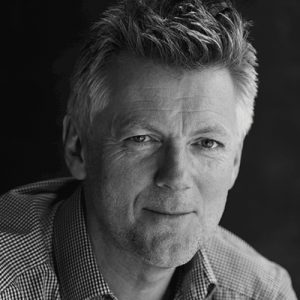 CHRIS LANG
CHRIS LANG
With drama writers, it’s all about structure, structure, structure. So although I can’t work a full day with the demands of five kids now permanently at home, I would recommend trying to carve out a dedicated period of the day (same time every day) for writing: I am doing from 8:30am to 1:30pm. Five full on hours is a lot shorter than a normal writing day, but still long enough to achieve a fair amount before spending time with the family. I am doing this five days a week, without fail.
Everyone has to find their own balance: some will be able to write more, some less, but as long as you set aside a dedicated period every day, it will help keep you sane, and (almost as important) keep you potentially earning.
Chris Lang has written and produced 150 hours of primetime drama, including Unforgotten, Innocent, Torn, The Tunnel, Dark Heart, The Hook Up Plan and A Mother’s Son; and worked for the BBC, ITV, Channel 5, Netflix, Sky Atlantic, PBS and ABC. @chrislangwriter
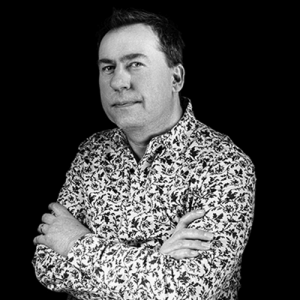 PAUL POWELL
PAUL POWELL
I’m naturally inclined to tumble down internet rabbit holes and pore over social media posts so I’m pushing hard to stay disciplined and keep a routine. I’m getting into the office (Ikea cushion tray on bedroom sofa) at 9am and working through till 7pm, with the usual kickbacks of coffee breaks and text messages plus family time. It’s easy to get depressed in these circumstances so I’m determined to end each day feeling positive about having achieved something.
Part of that push to fight off the black dogs of panic and despair is to get outside and exercise. I’ve been taking walks, cycle rides and playing basketball with the kids. Anything to stem that expanding waistline and diminishing self-esteem.
All of this comes with the caveat ‘don’t overdo it’. It’s totally fine to take it easy and take some time off. Look after yourself (and those around you). Allow yourself time to grieve the people/places/things you’re missing.
Technology has been my saviour. I’m really enjoying using Zoom, Skype and FaceTime for meetings. It’s reassuring to see someone’s face and it’s much easier to read someone’s tone by reading their expressions and body language. Besides, I suspect we’ll be using more of these apps in the future so now’s the time to get up to speed.
Finally, you’ll never have a better opportunity to write that sitcom/drama/screenplay you’ve always promised yourself. On the downside, the world and their dog will be doing the same so expect some very stiff competition (and some horrifically reduced budgets) in the brave new world.
Paul Powell is a comedy writer, producer and former ALCS Board member whose credits include Miranda, Zapped, Insert Name Here and the Royal Variety Performance. @PGPowell
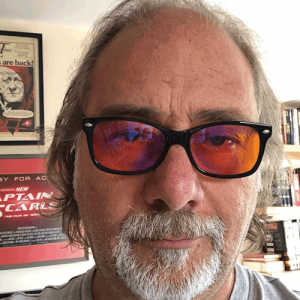 PHIL FORD
PHIL FORD
Four weeks into the lockdown – and it’s just another day at the office for freelance writers. We’re used to isolation, and apart from the most fabulously fortunate, many of us are used to periods of not getting paid. These are worrying times, but try to look on the bright side, literally. This unprecedented period of darkness has coincided with blue skies and warm sunshine. So if you can, move your office outdoors; or at least sit by a window and open it. Light boosts our mood, being as close to nature as we can get reduces stress. Of course writers live in all kinds of places, but nowhere is devoid of nature, even if it means sitting at your high-rise window and gazing at fair weather clouds. Relax and enjoy it.
Phil Ford is a writer whose TV credits include Doctor Who, Coronation Street, Taggart, and The Sarah Jane Adventures. He is co-creator with Russell T Davies of Wizards vs Aliens. @philfordesq
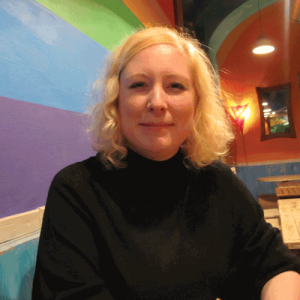 DAISY COULAM
DAISY COULAM
You’d think writers would be in their element in these times. After all, we were working from home, wearing lounge wear and feeling anxious about work and our next pay cheque long before COVID-19. Far from being prepared though, I’m struggling to feel creative, to focus, to open Final Draft rather than the rolling news…
And if your attention span is anything like mine, you’ll be looking at your phone before the end of this sentence. I find working in small chunks helps. Write for an hour, then leave your desk. Make a cup of tea. Play with the dog. Go for your government-sanctioned walk. Writing a couple of pages a day right now is a victory. You should congratulate, not chastise yourself for doing so.
Making money is a huge concern. Not least because writers’ incomes are precarious at the best of times. I’m not sure there are any easy answers here. Don’t suffer in silence is the only thing I can suggest. Gareth Maclean wrote beautifully about his own financial struggles during lockdown in The Guardian recently. “Shame thrives in silence, in secrecy” he wrote. “So I am trying to own the shame lest the shame own me.”
Daisy Coulam’s writing credits include Grantchester (ITV), Deadwater Fell (C4) and Humans (C4).
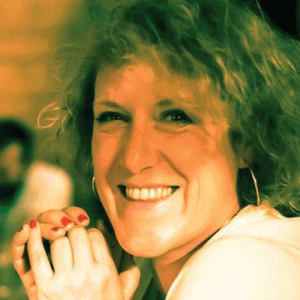 SARAH PHELPS
SARAH PHELPS
Seriously ration the news. When this kicked off I was glued to the rolling news, refreshing Twitter, chewing my fingers to the knuckle, waking up after a few hours sleep to see what Trump was up to and then screaming into cushions so I wouldn’t scare my neighbours. I’ve rationed my news down to first thing in the morning and early evening and I work when I can.
However when my brain feels like broken glass rattling in a tin because the world is melting and the worst people ever are in charge, I stop and watch old episodes of The Simpsons. And then I work again and actually, it helps; the discipline of it set against the roiling horror. Boccaccio started The Decameron during the Black Death and if he could tell stories during a pandemic then so can I. So can we all. Because we’re going to really need stories.
One last thing. Curate your social media timelines. Block the spit-frothing conspiracy theorists. Find the funny, kind people. Cleave unto them. Perhaps you’re one of the funny kind ones. Thank you. You’re bloody brilliant. And now I’m going to sit in my pants eating Wotsits.
Sarah Phelps is a screenwriter whose credits include Dublin Murders, And Then There Were None, The Witness for the Prosecution, Ordeal By Innocence, The ABC Murders and The Pale Horse. She is currently working on A Very English Scandal 2. @PhelpsieSarah
Hannah Coulam photo © Matt Writtle
